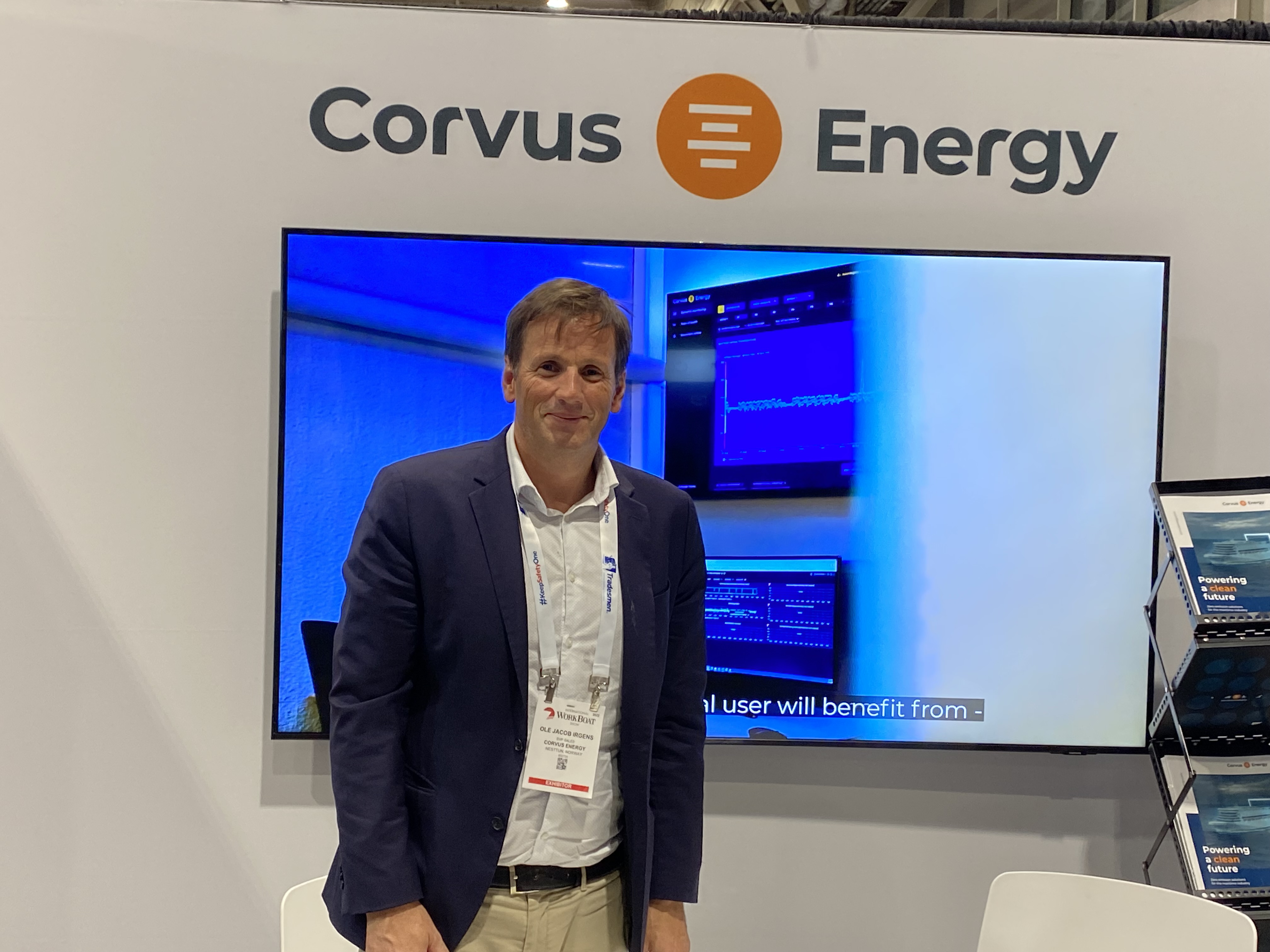One of the overarching themes at the 2022 International WorkBoat Show has been reducing carbon emissions, currently the focus of nearly every industry right now including maritime.
Among the organizations highlighting their energy solutions is Corvus Energy, a Norwegian-based energy storage solution (ESS) provider who serves vessels including cruise ships, ferries, oil service vessels, tugs and other workboats. The company is a relatively old one for the space, having been founded in 2009.
With new regulations aimed at reducing emissions, the maritime industry is seeking to make the switch to alternative fuel sources as quickly, including with battery-based solutions like the ones offered by Corvus.
This is a similar scramble to the one we’ve seen over the last decade in the automotive industry. But Ole Jacob Irgens, Corvus Energy USA Ltd. president, told WorkBoat.com that there are different challenges in the maritime space, specifically that marine vessel operators are typically holding on to their vessels significantly longer than automobile owners. Thus, car owners are likely to benefit from new innovations more quickly than vessel owners who may have operate their vessels for three or four decades.
For that reason, combined with how quickly the science is changing and advancing, one of the focuses for Corvus right now when designing their battery solutions is modularity. If and when a new cell technology is developed, their aim is to seamlessly implement the new pieces into their old design without a complete overhaul. As Irgen puts it, their products today are “like LEGO blocks. They are very simple and very scalable.”
While there are other ESS options on the market, three things allow Corvus to separate themselves from the competition, Irgens said. One is that the company is older than you typically see in this space, with 13 years of experience. Irgens also said the company makes a point to hire employees with a wide-range of experience in the maritime industry, and they try to ensure local manufacturing wherever possible in order to both meet local regulations and ensure safer shipping practices.
Given how rapidly the energy space changes, Corvus is also continuing to look forward to the next generation of energy solutions. Right now, that focus is on on fuel cell systems, which are being developed in partnership with Toyota. The car maker has plenty of experience and knowledge in developing these fuel cells, which convert hydrogen fuel into electric energy.
Toyota approached Corvus to combine their fuel cell expertise with Corvus’ knowledge of the maritime industry. These systems are under development, with pilot projects scheduled for 2023 and the first shipments of commercially available solutions in scheduled for 2024.




